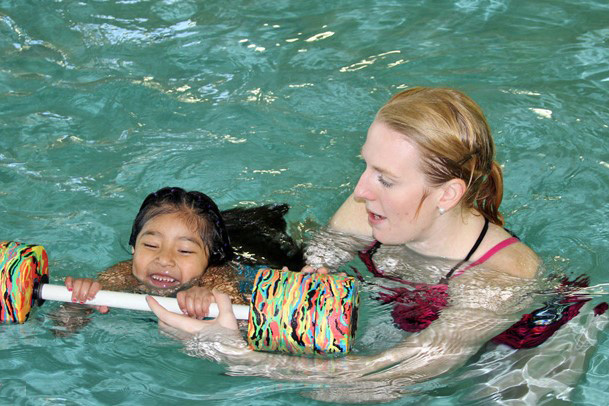
By Mickey Schommer
Contributing Writer
GREEN BAY – The Government Employee Health Association (GEHA) has pledged $5,000 to provide aquatic safety programming for the Greater Green Bay YMCA’s “Safety Around Water” program.
Through the Joe Delaney Learn to Swim program, the GEHA is helping to address historic aquatic inequities throughout the United States.
The GEHA is a health and dental benefits provider for more than two million people throughout the United States, exclusively federal employees and military retirees.
“Our main focus when it comes to philanthropy [which] ties into our overall mission as a health benefits company is health equity,” said GEHA’s Corporate Social Responsibility Manager Gene Willis.
One of the key areas of this focus is health equity surrounding racial disparities in health care.
“History shows that, frankly, communities of color have not always had the same access and historically equal treatment as other citizens through the country,” noted Willis.
The GEHA is looking to mitigate these inequities by looking “upstream” for the reasons that cause them.
“When our country experienced segregation leading up to the 50s or 60s and several decades and history before that, America had access differences when it came to swimming, meaning many of the pools were ‘Whites-only’ or many communities had only a day at the end of the season where communities of color would be able to swim or access [the pool] – if they were able to at all,” said Willis.
“When you have communities that grew up in that time — particularly children that grew up — and, frankly, they were afraid of the pool because there were times when their parents, their grandparents, or themselves were treated very, very poorly. There were times that pools were drained if a person of color got in the pool because the dominant culture would see the pool or the water ‘being dirty’ at that point,” he explained.
“When you have that happen, that young child grows up and they want to make sure that their children don’t experience the same trauma they experienced. I think that’s a natural proclivity for a family,” he added. “And so, that parent decides not to take their child to a pool or a swimming area and then that kid grows up. That child then doesn’t have swimming lessons or a swimming ability and trauma often time means that we don’t talk about the bad things that happen to us — particularly in former generations.”
This cycle is continued through systemic swimming trauma, in which a parent’s ability to swim is directly connected to their child’s ability.
Without understanding this, the country’s bigger health concerns are not able to be solved, stated Willis.
“[The cities where the program takes place] don’t have to be exclusively communities of color, but we do want to make sure that these are representative of where there is a need,” explained Willis.
Students who are involved in the program will likely come from Black, Hispanic or Native communities as they are the most affected by aquatic inequities.
“We’re trying to create new and healthy cycles,” he said.
“Relevant to what we’re doing with schooling [through the Joe Delaney Learn to Swim program] is this: We know that swimming creates life-long, healthy habits. That goes from the physical activities to the emotional, communal, family to just the possibilities that come from if your ability to swim affects, perhaps, where you vacation, your proximity to water, your comfort.”
Because of Wisconsin’s large populations of lakes, aquatic safety is paramount in preventing water fatalities.
With the funding provided by the Joe Delaney Learn to Swim program, the Greater Green Bay YMCA is expected to provide comprehensive aquatic safety education for 120 students through the Safety Around Water program.
